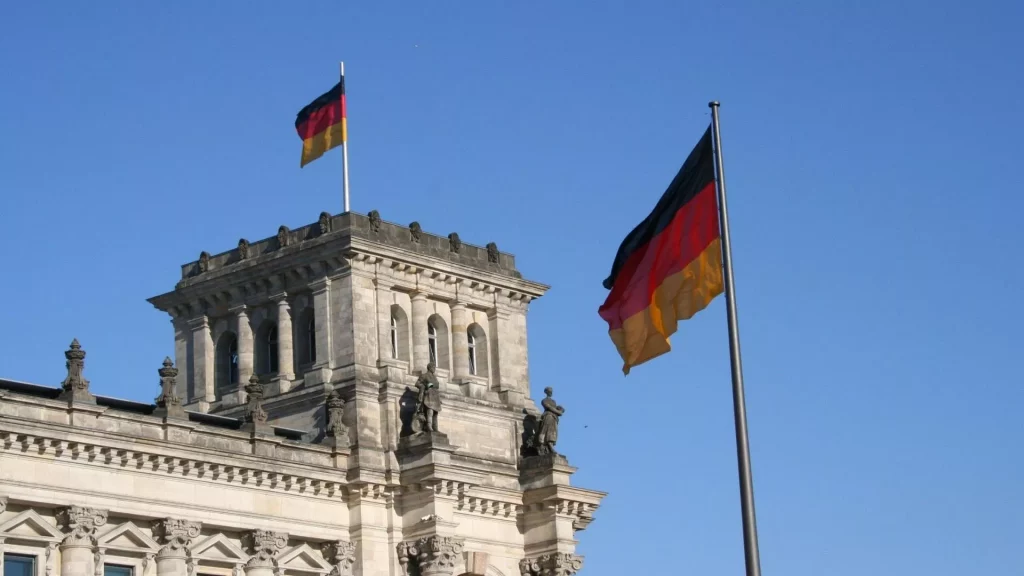Amid a shifting landscape of global migration flows, Germany has solidified its reputation as a preeminent destination for immigrants seeking enhanced socioeconomic opportunities. With an aging native-born population and increasing labor market demands in various high-skill sectors, the country has implemented pivotal policy changes to strategically attract and integrate foreign-born workers into its workforce.
Most notably, Germany passed a new skilled immigration law in early 2020 to facilitate and expedite the international recruitment processes across many occupational areas. Some key features of the legislation included:
EU Blue Card Changes
- Relaxed German language prerequisites for certain academic professionals and technical specialists applying for EU Blue Cards
- Lowered minimum salary thresholds to €40,000 for shortage occupations and €44,000 for other jobs
- Enabled skilled non-degree workers with 3+ years of relevant experience to qualify for IT sector Blue Cards
- Permitted nursing assistants with less than 3 years of training to access the German labor market
Right of Residence Modifications
- Guaranteed residency permits for all qualified skilled immigrants with proven professional or academic qualifications
- Streamlined and accelerated Federal Employment Agency’s approval procedures for companies hiring foreign recruits
Qualifications and Training Reforms
- Allowed immigrant trainees acquiring qualifications in Germany to reside for up to 3 years with part-time work rights
- Enabled immigrant students and trainees to take on parallel part-time employment
- Granted work authorization to skilled migrants as qualification recognition applications are processed
Opportunity Card Introduction
- Instituted a points-based Opportunity Card for skilled workers with equivalent foreign qualifications to enter Germany for up to 1 year to search for matching employment, given proof of financial self-sufficiency
- Opportunity Cardholders may work part-time up to 20 hours weekly, with extensions possible up to 2 years with secured qualified job offers
Western Balkans Regulation Change
- Doubled annual quota for skilled immigrant workers from the Western Balkans region to 50,000
Beyond legislative actions, Germany has prioritized holistic integration frameworks to ensure skilled foreigners can actively participate in its economy and society.
Municipal Welcome Centers
In 2007, Germany’s Federal Integration Advisory Council pioneered the Welcome Center model to provide newly-arrived immigrants with comprehensive settlement services. These support facilities, localized across cities like Hamburg, Berlin, Stuttgart and Frankfurt, offer:
- Multi-lingual assistance navigating complex bureaucratic procedures related to work permits, visa processing, housing, healthcare access, school enrollment, language classes, recognition of foreign qualifications, and more
- Early career guidance, job search strategies, upskilling opportunities for employment-ready migrants
- Psycho-social counseling and cultural orientation programs that ease acculturation challenges
- Platforms to connect with local community groups, networks and mentors
The visible expansion of Welcome Centers, each tailored to regional needs, highlights Germany’s strategic embrace of skilled immigration and commitment to integration. With collaborative efforts across federal, state and city governments, non-profits, employers and immigrant associations, the centers have achieved tangible positive impacts.
Looking Ahead
Amidst intensifying global competition for specialized talent, Germany’s multifaceted initiatives to recruit skilled foreign workers and smoothly integrate them into the social fabric and economy, signify remarkable progress.
The new immigration laws, reforms and integration infrastructure demonstrate Germany’s recognition of skilled immigrants’ indispensable value in driving innovation, growth, and sustainable prosperity. By simultaneously upholding inclusivity, diversity and social cohesion, the country is strengthening its positioning as a vibrant epicenter of opportunity.
Additionally, the rules for non-EU immigrants are set to gradually change starting November 18, 2023. This involves easing restrictions, expanding work rights and streamlining application processes to enable more skilled talents from non-EU states to immigrate and contribute to Germany’s economy.
With sound policies now codified into law and integration supports established, Germany is well-poised to continue attracting global talents to fulfill its labor force needs and realizing the abundant promise of immigration.


